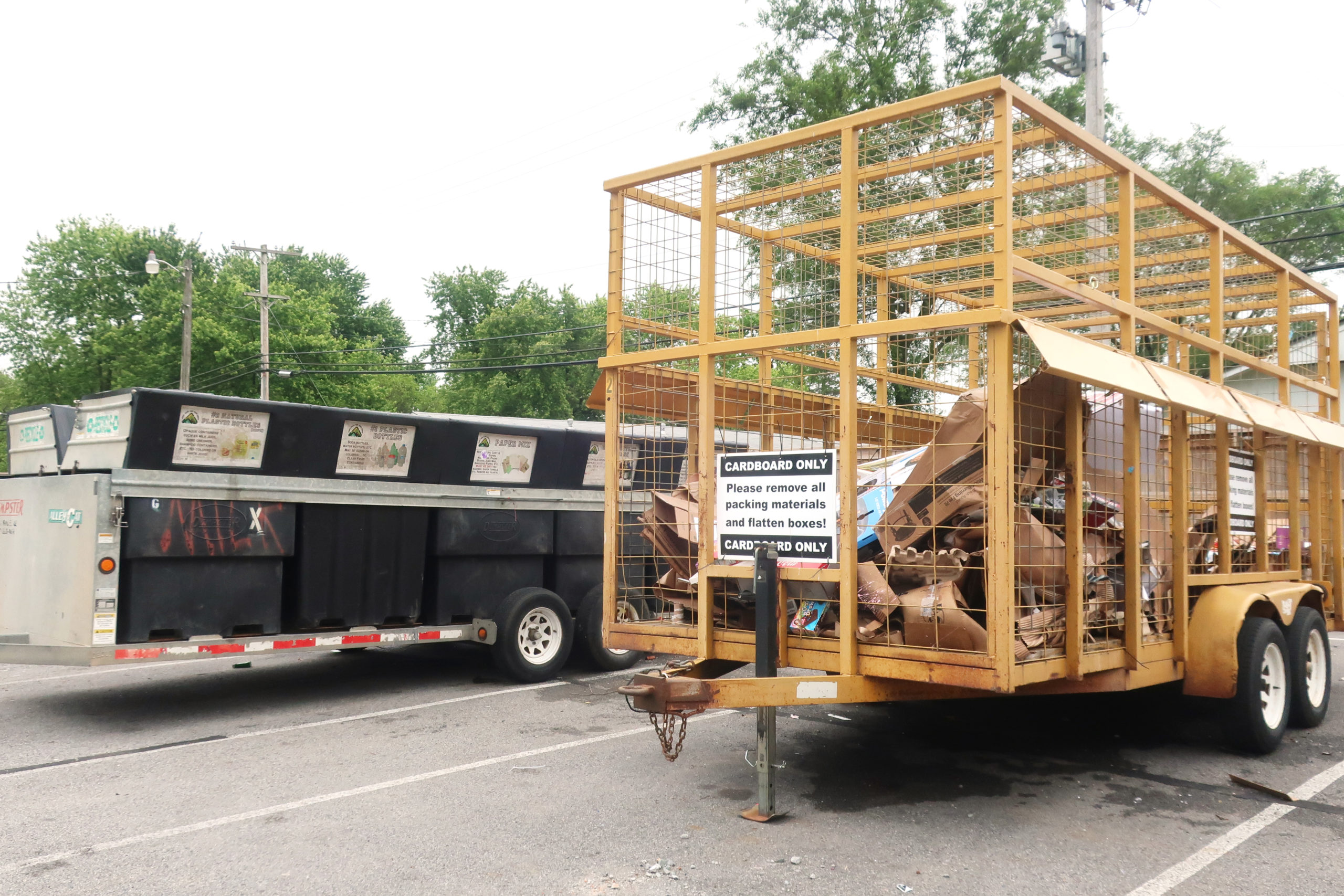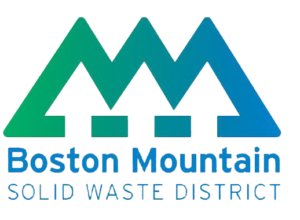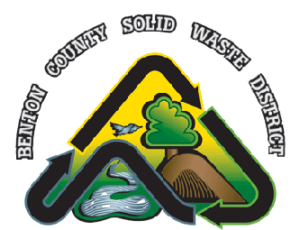Longtime visitors to this website have heard the recycling basics plenty of times: Don’t bag recyclables in your cart or bin, know what materials your community program accepts, make sure everything’s clean and empty. This post is for those passionate recyclers, the sort of person that answers friends’ recycling questions and moves bottles and cans from the trash can to the recycle bin in public places (I may or may not be referring to myself).
Here are four little things to help push your recycling to the next level.
Rinse out milk jugs and let them dry.
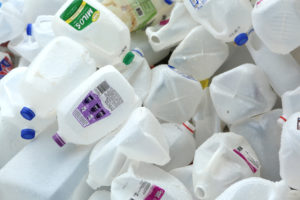
This is a little twist on the usual procedure in Northwest Arkansas, which is that you should give each bottle a little rinse, and it’s fine to leave on the cap. Milk jugs are their own beast. The smell of sour milk, as we all know, is a smell worth avoiding. Even a little residue in a rinsed jug is enough to create it. And when closed bottles are squeezed into bales for shipping, that smell is set free.
Wherever your recycled jug goes, a person with a working nose will handle it. Do your local recycling workers a favor by rinsing milk jugs well and either leaving off the lid or letting them dry out for a little while before you put the lid back on. (This fits a recycling rule of thumb: Besides the food scraps going into compost programs, recyclables should be clean enough not to run the risk of odors.)
Keep paper away from water.
You might have noticed that many of our area’s cardboard drop-off locations are essentially caged trailers, open to the elements (as in the header image on this post). It’s actually OK for cardboard to catch some rainwater. The manufacturers who will reuse it don’t mind some water, though any other liquid would be a problem.
It’s a different story with paper, like office paper or magazines. Paper’s flimsier fibers lose some of their quality when wet. So keep it dry! This is part of why it’s so important to rinse and empty bottles and cans (which, after all, must share recycling carts and trucks with paper). And make sure your curbside cart’s lid closes all the way in case of wind and rain.
Metal tabs and lids can be recycled, with a little help.
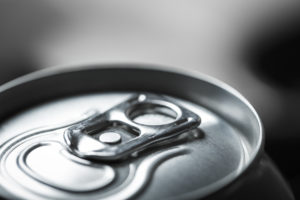
Some recyclable items can be too small to be feasible. A pop tab, for example, is perfectly good aluminum but would be easily lost in recycling machinery or get stuck in another type of recyclable, causing other issues.
There’s an easy fix in this kind of situation: Put small recyclable items inside of a container made of the same stuff. There’s nothing wrong with sticking a bunch of tabs inside an empty aluminum can and cinching the can closed, and it means those metal scraps get reused instead of landfilled. You can take care of the little metal caps of beer bottles in a similar way, but use a steel can if they’re made of steel (in other words, if they stick to a magnet).
Recycling goes beyond boxes, bottles and cans.
Community recycling programs typically take the same slate of materials, but you can go further. Paktech can holders, for example, can go to Pack Rat Outdoor Center, Black Apple Hard Cider and other local breweries. Styrofoam can go to the Rogers drop-off center north of downtown. Plastic bags can go to bins at the front of many grocery stores. Several kinds of food, cosmetic and household packaging can go to Terracycle programs. Clothing can go to resale stores or to Northwest Rags in Springdale. And you can reuse and repurpose countless items at home. How much could you be recycling?


